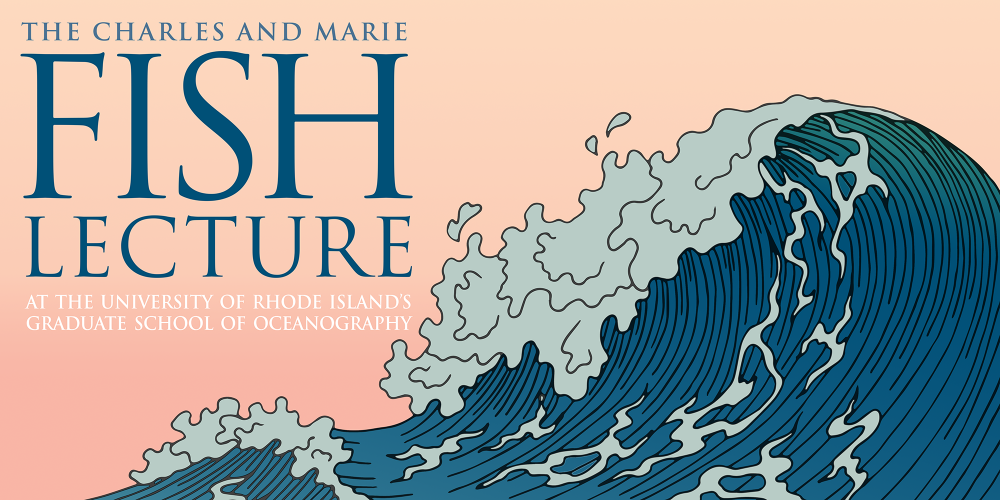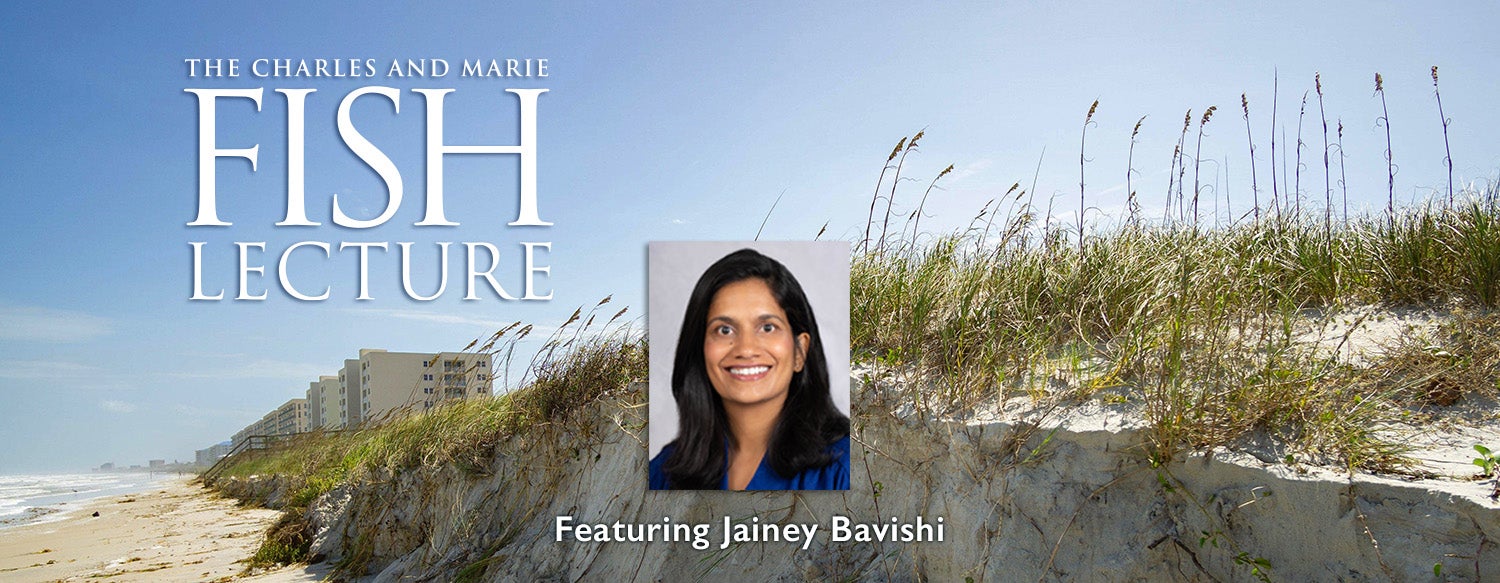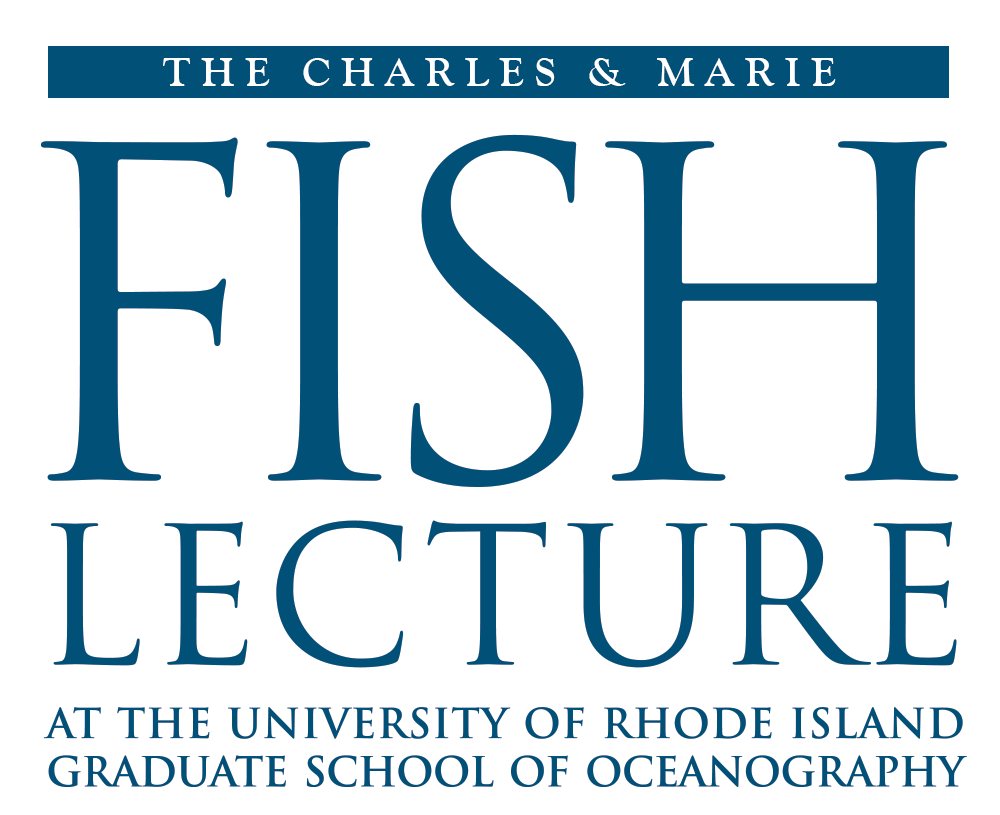
2026 Lecture
From the Ground Up: Communities Leading the Next Chapter of Climate Resilience
Featuring Jainey Bavishi, former Deputy Administrator of NOAA and former Director of New York City’s Office of Climate Resiliency
March 10, 6 to 7 p.m., Corless Auditorium on the URI Narragansett Bay Campus
PLEASE REGISTERAs climate impacts accelerate and uncertainty grows, communities across the country are redefining what it means to be resilient. In this fireside chat, Jainey Bavishi will explore how equity, local leadership and civic collaboration form the backbone of effective climate action, even as traditional systems face strain. Drawing on lessons from city halls, federal agencies, and frontline communities, the conversation will highlight how resilience can endure and evolve from the ground up.
Also featuring Elin Torell, Ph.D., director of the URI Coastal Institute.

About Jainey Bavishi
Jainey Bavishi has spent her career reimagining how cities and communities prepare for climate change. As former Deputy Administrator of NOAA and former Director of New York City’s Office of Climate Resiliency, she has led efforts to center equity, science and community leadership in climate adaptation. Her work connects national policy to neighborhood-scale action, helping shape a more just and durable approach to resilience. Bavishi holds a master’s in city planning from MIT and a bachelor’s in public policy and cultural anthropology from Duke University.
About Elin Torell
Elin Torell is the Director of the URI Coastal Institute. She is also the PI and project director of Rhode Island’s NSF EPSCoR E-CORE RI-NEST project “Rhode Island Network for Excellence in Science and Technology.” In these capacities she supports the growth of multi-and interdisciplinary research, discourse, and policy engagement at URI. She encourages cross-college collaboration and nurtures partnerships between URI, the state of Rhode Island, federal agencies, and community partners. With a Ph.D. in environmental studies and a M.S. in human and economic geography, Torell is an adjunct professor and graduate faculty in the URI Department of Marine Affairs.

About the series
The Charles and Marie Fish Lecture is an annual public lecture endowed by the family of Drs. Charles and Marie Fish. The Fishes established a marine biological program at the University of Rhode Island in 1935 and eventually a graduate program in oceanography at the Narragansett Marine Laboratory which later became URI Graduate School of Oceanography.
Past Lectures |
||
2024 |
Dr. Susan Solomon, Lee and Geraldine Martin Professor of Environmental Science, MIT | “Solvable: How We Healed the Earth, and How We Can Do It Again” |
2023 |
Charlie Enright, skipper of The Ocean Race-winning 11th Hour Racing Team | “Six Months Across the Ocean“ |
2022 |
Dr. Jennifer Francis, Woodwell Climate Research Center | “Arctic Meltdown: Why It Matters to All of Us” |
2021 |
Dr. Robert Ballard, Professor of Oceanography | “Adventures In Deep Sea Exploration: Living The Dream“ |
2020 |
Ian Urbina, investigative reporter | “The Outlaw Ocean“ |
2019 |
Dr. George V. Lauder, Harvard University | “Fish Robotics: How Fish Locomotion Will Inspire the Next Generation of Underwater Vehicles” |
2017 |
Dr. Beth Orcutt, Bigelow Laboratory for Ocean Sciences | “Buried Alive: Life Beneath the Seafloor” |
2016 |
Dr. Christopher Landsea, Science and Operations Officer, National Hurricane Center | “Inside the Eye: Improving Hurricane Forecasts“ |
2015 |
Dr. Barbara A.Block, Stanford University | “Saving Our Blue Serengeti” |
2014 |
Paul Greenberg, author | “American Catch: The Fight for our Local Seafood” |
2013 |
Dr. Bess B. Ward, Princeton University | “Solving a Nitrogen Cycle Puzzle:The Pathways of Fixed Nitrogen on Oxygen Depleted Zones of the Ocean” |
2012 |
Dr. Robert Hazen, Carnegie Institution of Washington | “Mineral Evolution: The Co-evolution of Rocks and Life” |
2009 |
Dr. Enric Sala, National Geographic Society | “The Search for the Last Virgin Coral Reefs” |
2008 |
Dr. Margaret Leinen, Climos, Inc. | “Climate Change Today and Tomorrow: Where Do We Go from Here?” |
2006 |
Dr. Larry Mayer, University of New Hampshire | “Mapping the Unseen Ocean:New Approaches to Mapping and Visualizing the Seafloor” |
2005 |
Dr. Kerry Emanuel, Massachusetts Institute of Technology | “Divine Wind: The History and Science of Hurricanes” |
2004 |
Dr. Rod Salm, The Nature Conservancy | “The Heat Is On: Conserving Coral Reefs to Survive in a Changing Climate” |
2003 |
Dr. Michael Vecchione, NOAA Fisheries/Smithsonian Institution | “Weird Deep Sea Squids and the Nature of Natural History” |
2002 |
Dr. Robert Ballard, University of Rhode Island Graduate School of Oceanography | “Ocean Exploration in the 21st Century” |
2001 |
Cindy Lee Van Dover, College of Willam and Mary | “Where the Wild Things Are: Explorations at Deep-Sea Hot Springs” |
2000 |
Blaine Harden, The New York Times | “Using the Columbia River to Explain the American West” |
1999 |
Sandy Tolan, Homelands Productions | “From Gloucester to Gaza: Social Tensions Over Scarce Resources” |
1998 |
Dr. Carl Safina, National Audubon Society, Living Oceans program | “Status and Trends in World’s Fisheries” |
1997 |
Dr. John Morrissey, Department of Biology, Hofstra University | “Sharks are People, Too” |
1996 |
Dr. Orrin Pilkey, Geology Department, Duke University | “Rising Seas, Shifting Shores: The Future of America’s Beaches” |
1995 |
Dr. Kathryn D. Sullivan, NOAA Chief Scientist and former Astronaut | “21st Century Challenges for the Ocean Science Community” |
1994 |
Richard Wheeler, Educator, naturalist and kayaker | “Survival of Northwest Atlantic Fisheries: Lessons from the Great Auk” |
1993 |
Dr. Bruce Robison, Monterey Bay Aquarium Research Institute | “Deep Sea Exploration, 19th Century Science with 21st Century Tools” |
1992 |
Dr. Sylvia Earle, NOAA Advisor and Deep Ocean Engineering, Inc. | “Ocean Exploration and the Environmental Aftermath of the Gulf War” |
1991 |
Charles Alexander, Senior Editor, Time Magazine | “What Role for the Press in Global Environmental Change?” |
1990 |
Sir Crispin Tickell, British representative to the United Nations and the Security Council | “The Human Implications of Global Climate Change” |
